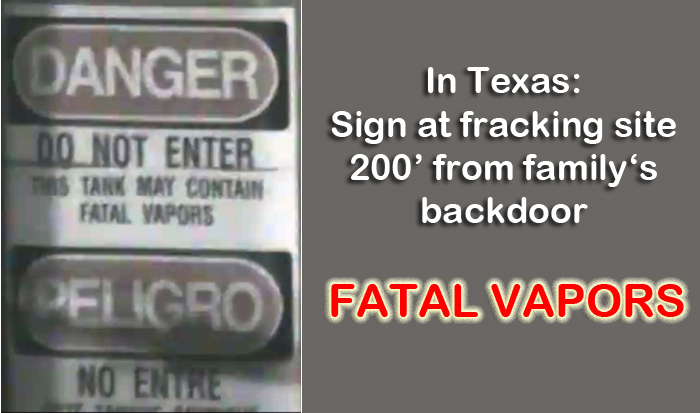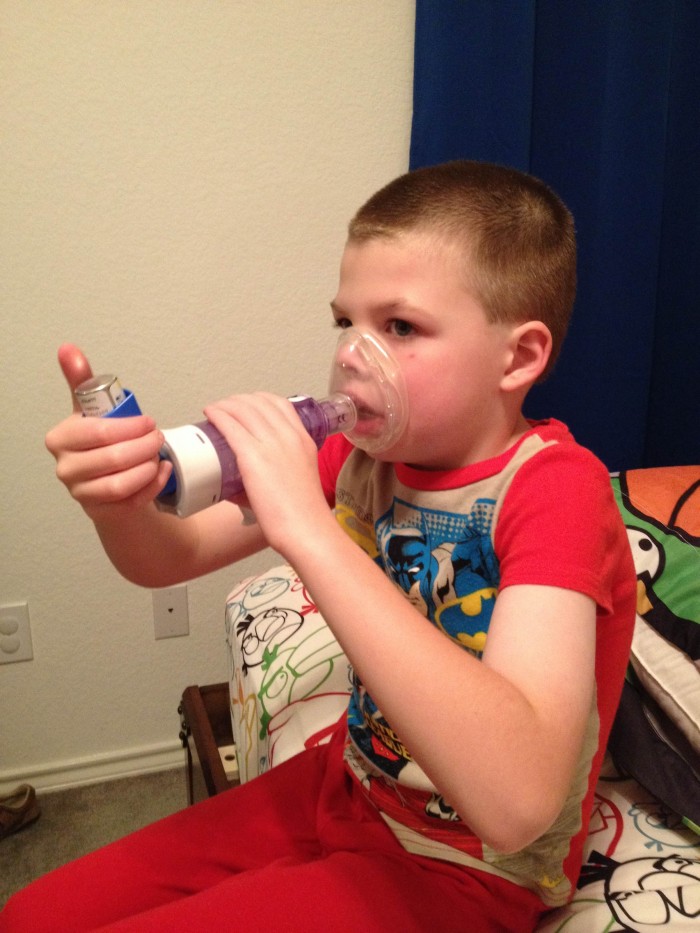
Another worker death from fracking fatal vapors
David Simpson died in Oklahoma where the medical examiner listed Simpson’s cause of death as unknown but failed to do an autopsy that could have discovered the cause. Simpson was found slumped over the open tank hatch at an XTO/Exxon oil and gas facility.
Okla. death shows lack of understanding of tank hazards
Mike Soraghan, E&E reporter
EnergyWire: Friday, September 18, 2015The investigation into Simpson’s death, or the absence of it, highlights a common lack of understanding of the lethal dangers in the air at oil and gas sites.
Federal worker safety investigators suspect Simpson was killed by a blast of petrochemical vapors from an oil storage tank at the XTO Energy Inc. site.
The inspector who investigated the case for the Occupational Safety and Health Administration deemed the safety practices at the facility “UNACCEPTABLE” in his report.
But OSHA dropped the case after the Oklahoma medical examiner listed Simpson’s cause of death as “unknown.”
Workers who are exposed to fracking fatal vapors are often afraid to speak up. As reported here in other articles, even when protective gear is available, they are discouraged from using it. Sometimes they are threatened if they use it as was the case for workers cleaning up the BP spill.
Fracking fatal vapors in our backyards
Here is where we need to apply some common sense and precautionary principles to protect the public from fracking fatal vapors, but fracking owns America and industry money overrides common sense and precaution.
Public health officials note that with oil well sites popping up more frequently in residential areas, the petrochemicals also could be harming people who live nearby. But they say they lack solid data on the threat. And worker safety researchers said they don’t even have enough data about the hazard at work sites, much less broader exposures.
The well site where Simpson died is in a rural neighborhood here at the end of Greasy Bend Road, near the banks of the Washita River. A hayfield stretches out behind the well site. Next door, about 1,000 feet from the well is a one-story house, separated by a sturdy fence.
There’s a smattering of other houses nearby. A road sign warns drivers to watch for children playing. Under a tree in front of one nearby house, on a warm spring day, was a pink toy car.
How much solid data is needed? Will there ever be data that is solid enough for public health officials to ignore industry influence and protect the public’s health?
A smattering:
Deadly hydrocarbon fumes and fracking too close to homes
Proof EPA methane rules needed
VIDEO: Uncontrolled methane releases from fracking
Fracking KILLS BABIES
Fracking emissions bad enough to cause death or severe health impacts
Deadly flowback vapors killed 21-year-old Montana man
COMPENDIUM OF SCIENTIFIC, MEDICAL, AND MEDIA FINDINGS DEMONSTRATING RISKS AND HARMS OF FRACKING (UNCONVENTIONAL GAS AND OIL EXTRACTION)
Gas Compressors and Nose Bleeds A new study connects health issues with rural gas compressor pollution.
But gas compressors are not only a rural problem. They are putting line compressors on oil and gas padsites right in the middle of neighborhoods only a few feet from homes.
Neighborhood children have increased asthma attacks.
Neighborhood children have increased nosebleeds.
Something you can do to help
Wednesday, September 23, the EPA will be in Dallas to hear public testimony on their proposed oil and gas methane rules. Information about the hearing is HERE.
We are having a press conference at 12:30 with tamales. Come join us, eat with us, hear from scientists and effected residents and show support for the speakers and the proposed rules. This may be our last chance to get some protection.
About Sharon Wilson
Sharon Wilson is considered a leading citizen expert on the impacts of shale oil and gas extraction. She is the go-to person whether it’s top EPA officials from D.C., national and international news networks, or residents facing the shock of eminent domain and the devastating environmental effects of natural gas development in their backyards.
- Web |
- More Posts(5121)


Fracking fatal vapors –are you really that ignorant. The vapors from a field holding tank is not fracking vapors has nothing to do with fracking. You don’t even know what fracking is or what fluids are used.
If you are going to write about a subject first learn something about the subject —
Of course I know what fracking is. Several of the workers in the series of articles died from flowback fumes, which are allowed to vent right next to backyards where children play.
I love it when people like you come on here and rant because I used a term for a process that is REQUIRED to produce the hydrocarbons in shale. The hydrocarbons in the tank that killed the man in this article would not be in the tank had fracking not occurred. LOVE IT! Thank you for making my day.
Sharon, I applaud what you for you are doing. I cannot believe the amount of damage FRACKING COMPANIES are doing to our air, water, land, and so much more, in the almighty pursuit of profit. The GREED of these companies and the people involved, is beyond my comprehension, considering they are totally aware of the damage they are doing. Their methods of acquiring property to lease, even when the owners are adamantly against leasing to them, is beyond despicable. It is also amazing to me, how corrupt the officials in positions of power are, not only in Texas, but it seems, all over the country. GREED at this magnitude, I fear, will end us, eventually, if it is not stopped.